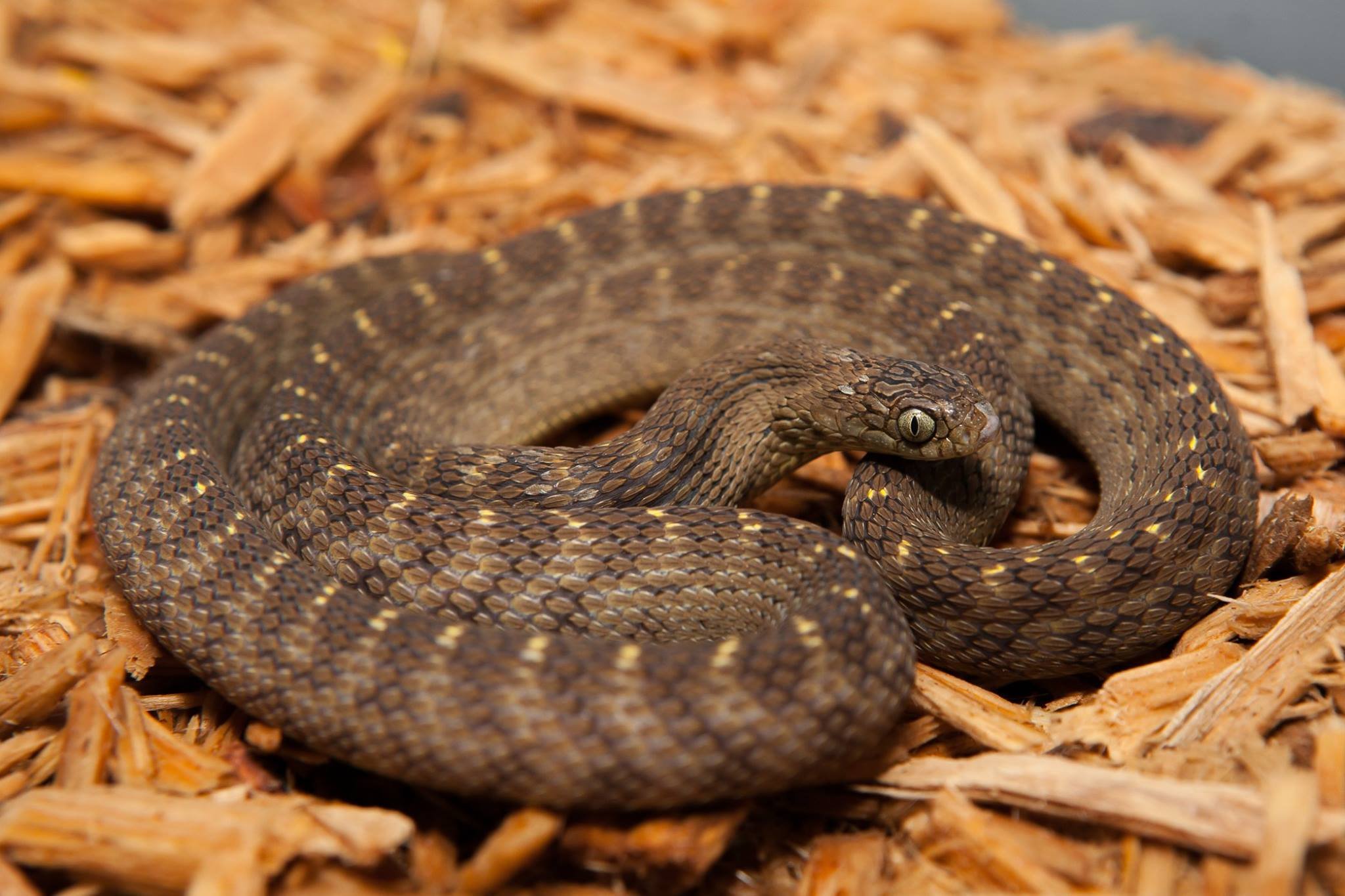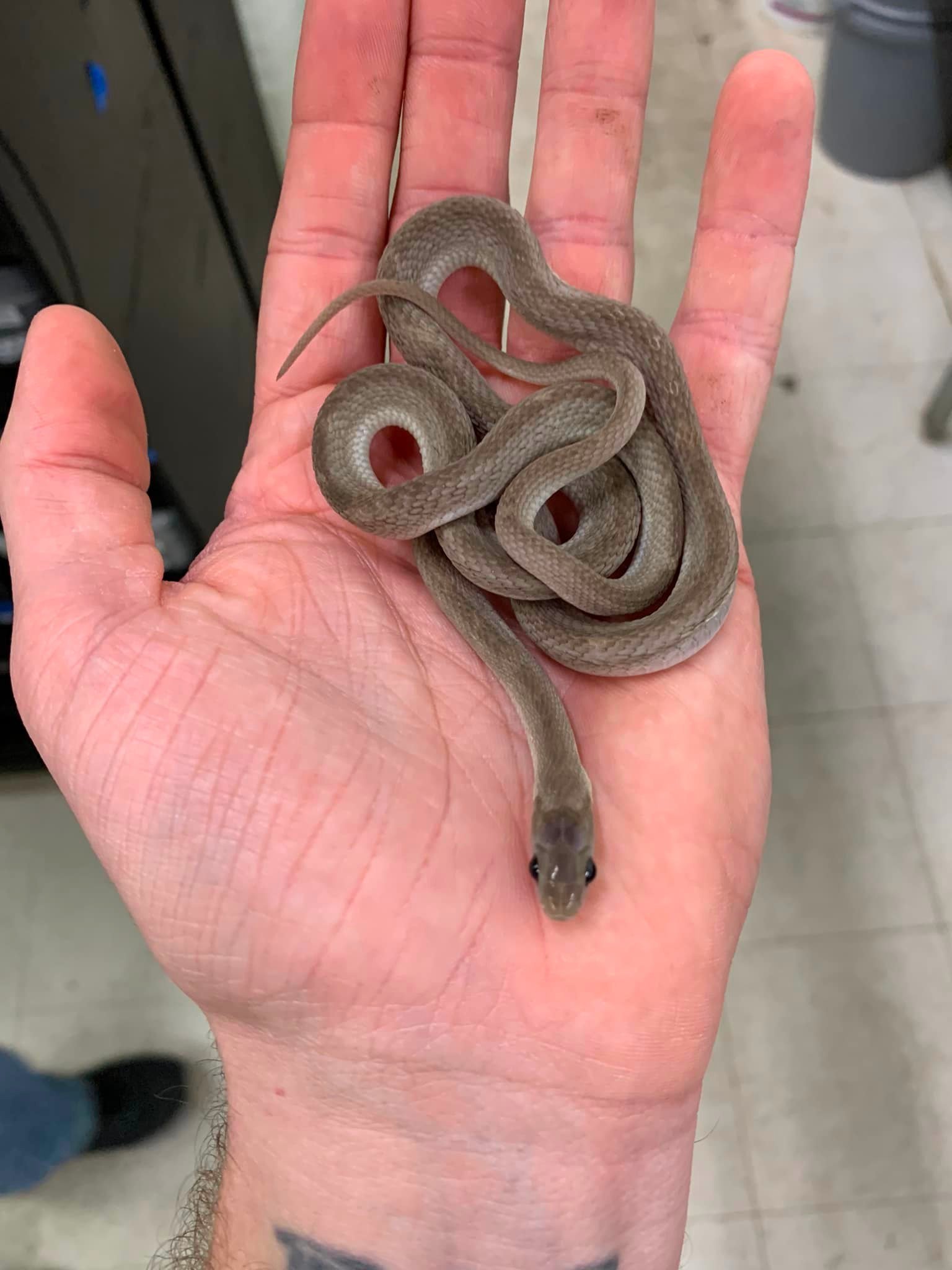No Mice Required - Egg Eating Snake Care Guide
Are you looking for a unique and fascinating pet snake that doesn't eat mice or other rodents? Consider the African Egg Eating snake, one of the most popular snakes I have available at Mike's Exotics! Egg Eating snakes are small, gentle colubrid snakes that live all over Africa in the wild. In this post, we will discuss how to care for these interesting creatures, including their housing, diet, breeding, and overall health.
Egg Eating Snake Enclosure
African Egg Eating snakes are relatively small, only growing to about 2-3 feet in length. Males stay much smaller, closer to 2 feet, while females get up to 3 or so. A 20-gallon enclosure with a secure lid is recommended for one snake. These guys are great climbers and great escape artists, so avoid any enclosure that might allow an escape. Provide a few hiding places and some branches for climbing. I prefer aspen bedding as an easy substrate, but bio-active enclosures are great as well.
Keep the enclosure clean by spot-cleaning regularly and doing a full clean about once every couple months. Egg Eating snakes are not very messy, so they require very little maintenance. The enclosure should have an ambient temperature about 75-80 degrees with a basking spot of 88-90 degrees. This can be accomplished with either an under tank heater or a low wattage basking bulb.
These snakes do require some humidity as well - I am not super scientific about it, but have had great luck in the 60-80% range.
Egg Eating snakes can be kept communally - their strict diet of eggs negates the risk of cannibalism inherent with many other snake species, they are not territorial, and do not exhibit any aggression toward each other.
Here is an affiliate link to purchase a great, easy Egg Eating Snake cage that includes everything you’ll need to get started (it’s not specific for Egg Eaters but will work great!) Click Here to purchase an egg eating snake enclosure kit.
Egg Eating Snake Species
There are several species of Egg Eating snake for sale on the market regularly, but luckily their care is essentially the same. The three species most commonly seen are:
Dasypeltis gansi - Usually light tan or yellowish in color. Most common.
Dasypeltis scabra - Grey/brown with black saddles or bands. Stay a bit smaller, closer to 2ft maximum size.
Dasypeltis fasciata - Deep olive green in color, same size as gansi.
Dasypeltis gansi
Dasypeltis scabra
Dasypeltis fasciata
Egg Eating Snake Diet
As their name suggests, African Egg Eating snakes feed solely on eggs. In captivity, they will eat primarily quail eggs, which should be offered raw and whole.
It’s a very fascinating process watching Egg Eating snakes feeding! Your snake will swallow the egg whole, then undulate its neck back and forth, where a specialized bone will crack the shell. Then, the egg-eater will swallow the yolk and albumen and shortly after, spit out the now-empty shell. Watch this video I took of one eating:
Quail eggs can be easily acquired at many global/world food stores, or even online (such as ebay). Smaller animals may need to start on finch eggs or button quail eggs, but I typically only offer snakes for sale that are large enough to eat quail eggs to make it easier on the new owner. It's important to offer clean, fresh water in a shallow dish for your snake to drink from.
Health
African Egg Eating snakes are generally hardy and relatively low-maintenance. However, it's important to monitor their health and behavior regularly. Signs of illness may include lethargy, lack of appetite, or respiratory issues. If you notice any of these signs, contact a veterinarian who specializes in reptiles right away.
Wild-caught or Captive Bred?
Egg Eating snakes are most readily available as wild-caught imports. Luckily, these snakes are very hardy and simple to care for, and they transition to captivity quickly and readily. While sourcing captive bred animals is always ideal, it’s simply not practical or even possible most of the time for this species as almost nobody breeds them.
Occasionally captive hatched babies will pop up as people got lucky with their wild caught females laying eggs for them.
I actually recommend wild caught adults over captive bred / captive hatched babies to beginner snake keepers. This is simply because it is remarkably easier to buy quail eggs for adults/subadults, than it is to buy finch eggs. Quail eggs are readily available on ebay as “hatching eggs” and typically only cost around $5-10 for a dozen or so - cheaper than buying rodents to feed other snakes!
These guys are typically very easy to get going and I always make sure my imported snakes are treated for any external parasites, and feeding well before I offer them for sale.
Breeding Egg Eating Snakes
Breeding African Egg Eating snakes is actually very simple and easy - it is simply a matter of keeping males and females together, and simulating the natural temperature variations they experience in the wild. An easy way to accomplish this is just to lower the temperature in the enclosure by around 8-10 degrees during the fall, and increase the temperatures back up again mid winter into the spring. Your snakes will breed and the female will eventually lay around 8-12 eggs or so.
You do not need to worry about the snakes eating these eggs - they are specifically evolved to eat hard-shelled birds’ eggs, and not leathery reptile eggs.
The only difficult part about breeding Egg Eating Snakes is raising the babies. They are so small that the only thing they will be able to eat are finch eggs- which can be tough to come by.
Is an African Egg Eating snake right for you?
As a non-venomous and non-aggressive snake, the African Egg Eating snake is a great pet for both beginner and experienced snake owners. They are docile and easy to handle, making them a good choice for a first pet snake. If you're looking for an African Egg Eating snake for sale, you can buy reptiles online at Mike's Exotics.
In conclusion, African Egg Eating snakes are fascinating and unique creatures that make great pets. By providing them with a suitable enclosure, a diet of eggs, and proper health care, you can enjoy the companionship of these amazing snakes for many years to come. Visit our online shop to buy Egg Eating snakes and other reptiles for sale.





